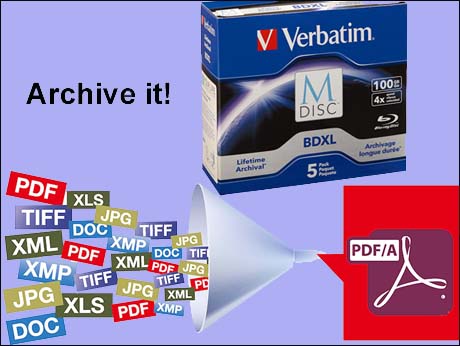
Create your own personal archive -- but don't tie yourself to today's technology
Bangalore, January 7 2019: If you are over 50 and were a desktop computer user in the 1980s, chances are you have a few floppy disks lying around -- with photos or documents that you saved, every time you changed your PC. Today, chances are you can no longer open the floppy -- and the contents are as good as lost.
Don't make the mistake of your elders: We all have precious memories we want to leave our children -- in a form they can enjoy. Free cloud storage is as good as it goes -- but capacity is usually limited to 20 GB or so and it is difficult to 'hand over' an email account. Your own physical storage hardware is still a good option, but there are a few caveats:\
Hard disks and USB Flash storage is what comes to mind -- but be warned, they don't last forever. Today's thinking is: they are good for 10-15 years max. Then what?
Millennial Disc: A recent option is the M Disk ( M for millennial). It looks like any DVD. It can be read by any DVD drive ( though you need an M Disk drive to write data the first time). The beauty is, the M Disk will last indefinitely: The inventors say, a 1000 years, but even if that is an exaggeration, it is a good choice even if good for 100 years. It uses a form of hard carbon as the recording layer, that will not corrode due to the air around it -- and data is written by a high power laser. More importantly, it is not too pricey. You can buy a box of 5 M Disks for around Rs 2000.
Archival PDF: PDF is the de facto standard for storing documents, in a way that cannot be modified -- and we tend to store important images and docs using the Adobe Acrobat tool. But here's the hitch: Who knows, 10-20 years from now, what shape Acrobat will take -- and whether the version prevalent then, can read a file written to an earlier standard? That is why archivists use a format called PDF/A ( for archiving) . This is a subset of the common PDF format, but it contains within it, all the information needed to read it, in effect future proofing the file. Think of it as packing a bottle opener along with that bottle of fizzy, just in case. If you haven't noticed before, look now, there is a 'Save as PDF/A' option in Adobe Acrobat. And there are many third party tools to save all manner of text and image formats as PDF/A files. Start to save for posterity!ANAND PARTHASARATHY